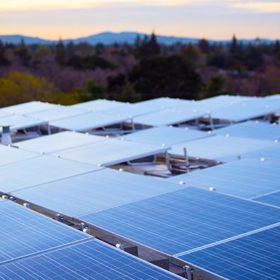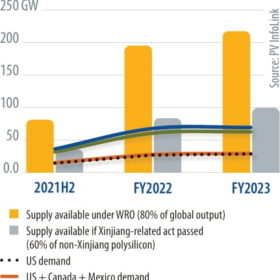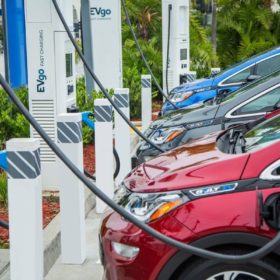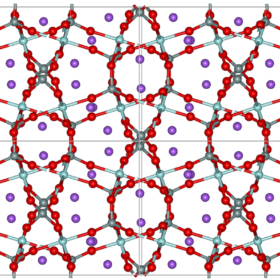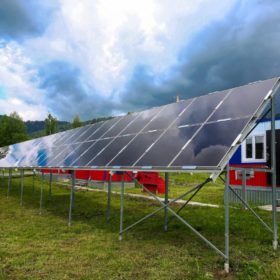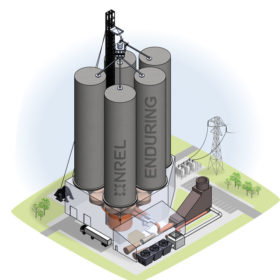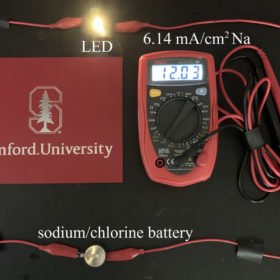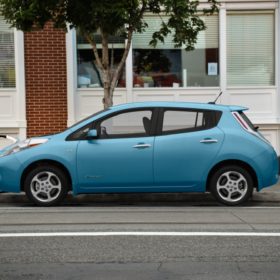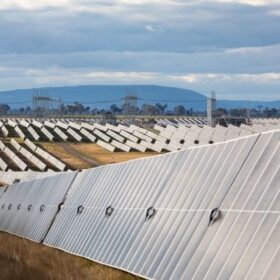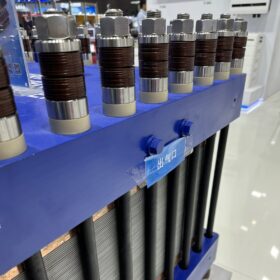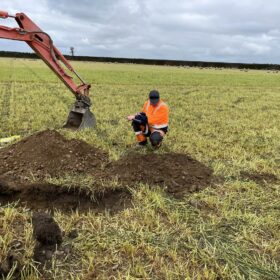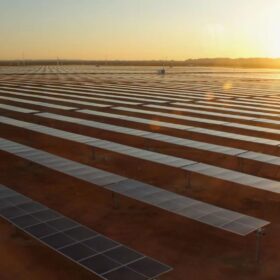Semi-transparent organic solar cell for window applications
Developed by U.S. scientists, the 10%-efficient device is intended for applications in solar windows and promises efficiencies close to 15%. According to its creators, the cell retained 80% of its efficiency after 1,900 hours at 55 degrees Celsius.
Price increases hit US solar
Price increases, supply chain disruptions, and a series of trade risks are threatening the U.S.’s ability to decarbonise the grid, warned SEIA president and CEO Abigail Ross Hopper.
Sunday read: looming impacts of international trade disputes on polysilicon
Polysilicon capacity is unable to catch up with rapid capacity expansion in the mid and downstream segments, writes Corrine Lin, chief analyst for PV InfoLink. New polysilicon capacity requires big capex investment and a lead time of more than two years to complete construction and reach full operation. With unbalanced capacity between the upstream and downstream segments, polysilicon prices have been rising since the second half of 2020, with prices for mono-grade polysilicon surpassing CNY 200/kg (US$27.40) in June 2021, up more than 250% year on year.
How safe are smart EV chargers?
Research has uncovered critical security threats associated with a number of common smart electric-vehicle chargers, but it’s not too late or too logistically difficult to remedy the issues.
Designer bacteria for energy storage
A group of biologists in the United States working with a bacteria discovered a mechanism that could be used to convert electricity into biofuels or other useful substances. With better understanding of the genetics, the group says the mechanism could rival hydrogen for the storage of renewable energy.
Novel chemistry hybrid flow battery: non-aqueous, high-voltage, and crossover-free
Scientists in the United States claim to have created a crossover-free, high-voltage, non-aqueous hybrid flow battery with a novel chemistry for the solid sodium anode. The device has shown a high working voltage of around 2.6 V and a coulombic efficiency of 95.0%.
Measuring impacts on solar performance, whatever the weather
Scientists in the United States used machine learning to analyse maintenance reports, performance data and weather records from more than 800 solar farms located across the country. The analysis allowed them to determine which weather conditions have the biggest impact on PV generation, and to suggest the most effective ways to boost the resilience of PV installations to extreme weather events.
Storing wind, solar power with silica sands
NREL researchers developed a system that uses heated silica particles for thermal energy storage. The baseline technology is designed for a storage capacity of up to 26,000 MWh and is claimed to have a cost of of between $2 and $4 per kWh.
New alkali metal-chlorine battery promises 6x energy density
Scientists in the U.S. discovered a promising new battery chemistry based on chlorine and table salt. Batteries based on this chemistry can achieve at least six times the energy density of today’s lithium-ion batteries, according to the group that created it. The prototype battery could already be suitable for small devices such as hearing aids, and with further work could be scaled up to larger applications.
US company using 3D printers to make solid-state battery tech for EVs
California-based Sakuú Corp. has started work on a 2.5 MWh per year pilot facility to produce 3D-printed solid-state battery tech.

